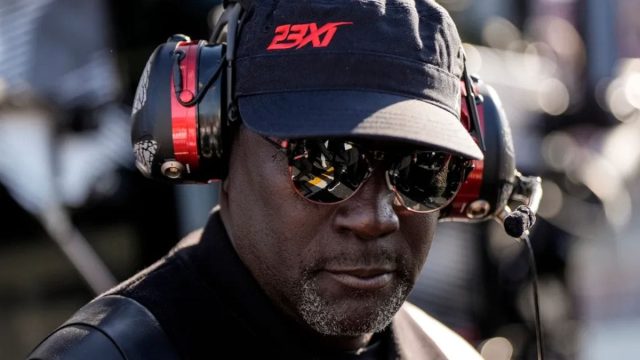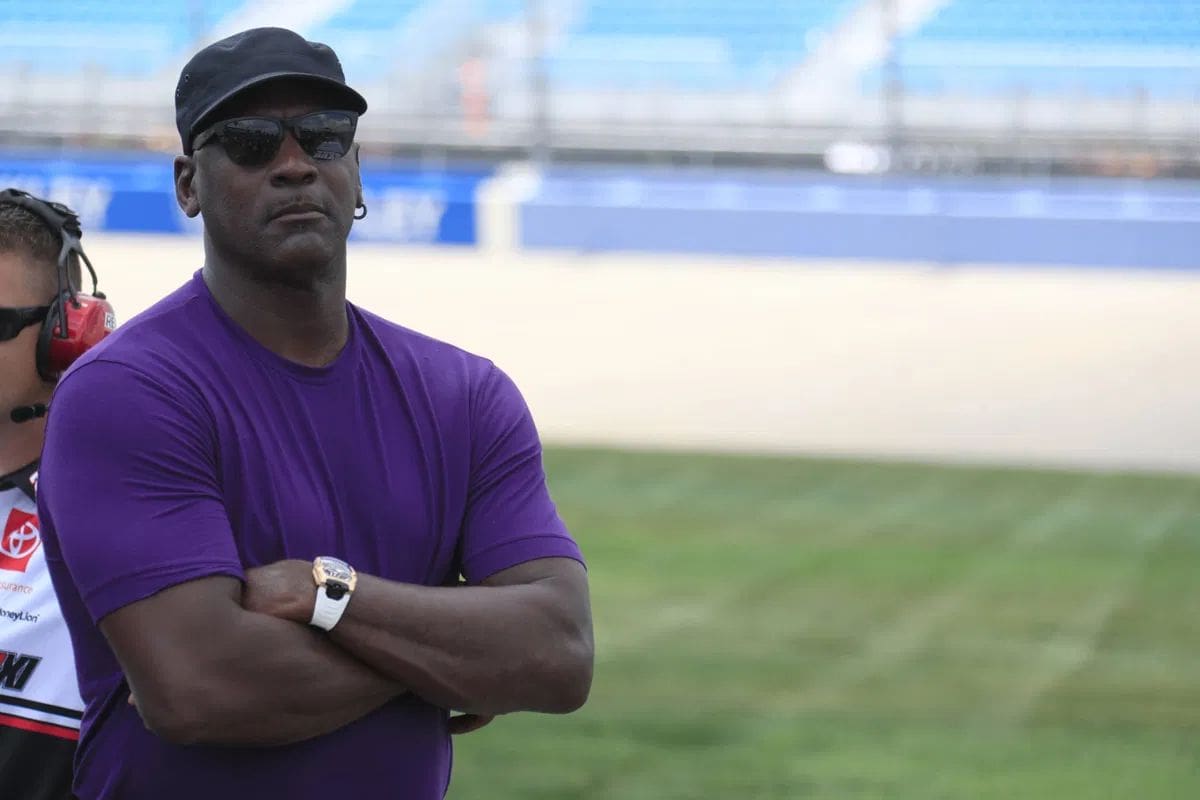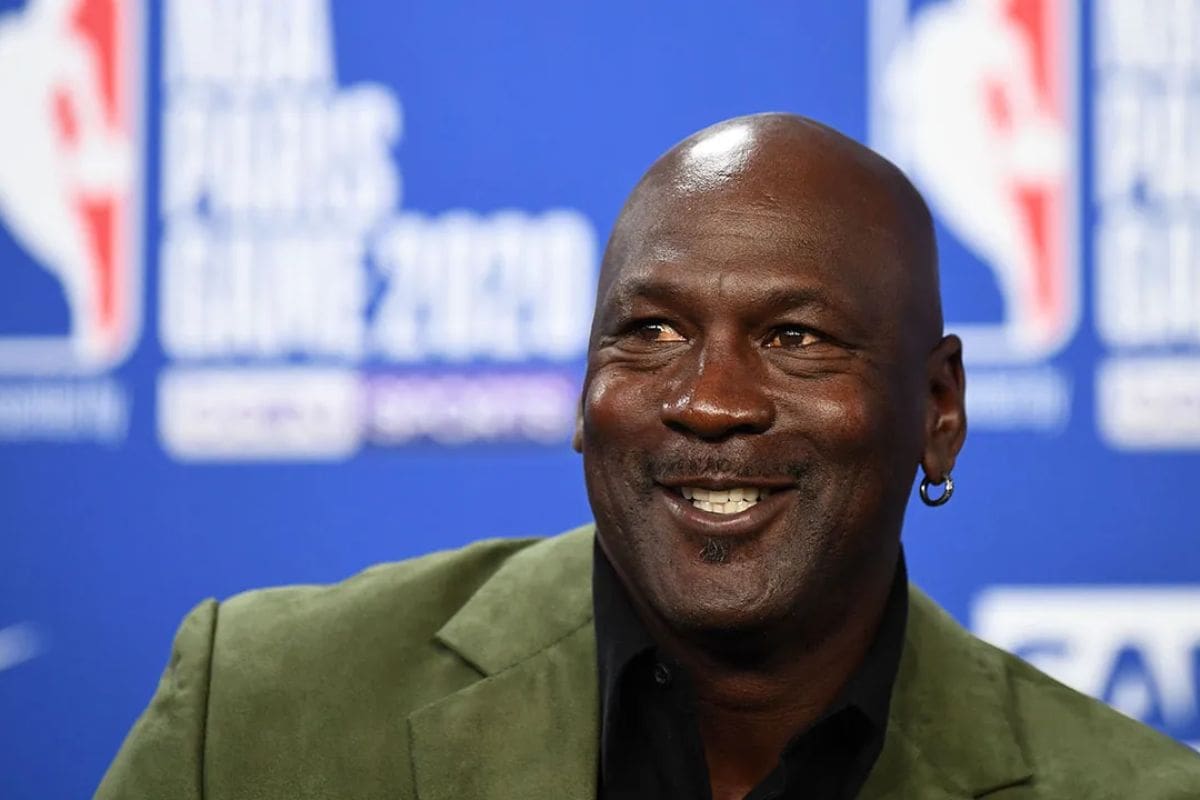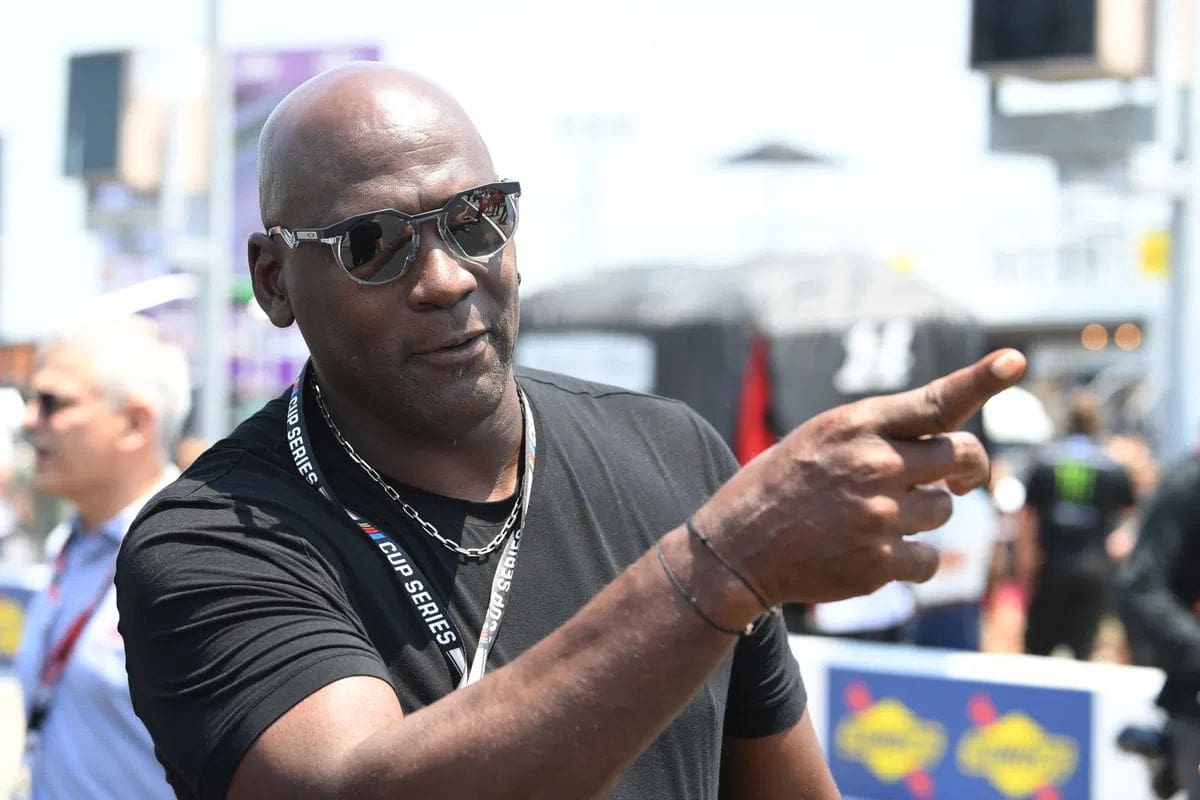Michael Jordan’s NASCAR Masterplan: Michael Jordan’s entry into NASCAR, accompanied by his unique approach to team dynamics, introduces the possibility of a ‘divide and rule’ strategy that could notably impact the playoff race. As the ongoing charter debate highlights tensions between established teams and new entrants, questions arise regarding the implications for competitive balance and driver alliances. With key stakeholders maneuvering financial negotiations and potential rifts, the unfolding scenario warrants close examination. The ramifications of these developments may not only reshape team strategies but also alter fan engagement in ways that remain to be seen.
Key Highlights
- Michael Jordan’s involvement in NASCAR may attract new fans and sponsorships, potentially influencing playoff race dynamics.
- The ‘divide and rule’ tactic could create rifts among teams, impacting collaboration and competitiveness during playoff seasons.
- Ongoing negotiations over revenue distribution and team equity may lead to changes in playoff formats and rules.
- Discontent among stakeholders could result in a backlash, affecting team strategies and driver performance in the playoffs.
- The future of NASCAR’s playoff race hinges on how effectively teams navigate current tensions and negotiations moving forward.
Ongoing Charter Debate and Current Status
The ongoing charter debate within NASCAR remains a crucial and contentious issue as teams grapple with the implications of a system that has drawn substantial criticism since its inception in 2016.
The current charter framework, designed to provide stability and security for teams, has instead created an environment of uncertainty. Teams lack guaranteed positions, which complicates their ability to attract long-term investors, ultimately stunting growth and innovation within the sport.
Despite hopes of finalizing a new charter agreement before the onset of the playoffs, recent developments suggest that the timeline may be unrealistic. Reports indicate that while some teams are poised to sign a new governing charter agreement that would extend from 2025 to 2031, others remain hesitant, indicating ongoing divisions within the ranks.
The potential signing of this agreement could provide a semblance of stability; however, the reluctance of some teams to commit highlights the inherent dissatisfaction with the existing system.
Prominent figures in the debate, such as Denny Hamlin and Michael Jordan, have emerged as influential voices, advocating for revisions that would improve equity among teams.
Their insistence on addressing key demands emphasizes the complexities of the negotiation process and the varying interests at play. As discussions continue, the future of the charter system remains uncertain, with notable implications for the operational landscape of NASCAR and the competitive balance among teams.
Details of the New Charter Agreement
Negotiations surrounding the new charter agreement have revealed considerable details that could reshape the financial landscape for NASCAR teams. The impending deal, spanning seven years with an option for a supplementary seven, is set against the backdrop of a charter policy that will expire after the 2024 season.
Teams were initially hopeful for permanent charters; however, the current agreement does not meet those expectations, leading to discontent among stakeholders.
This new agreement is anticipated to improve teams’ share of media rights revenue, a crucial component for financial viability. Presently, teams receive only 25% of this revenue, while racetracks claim 65% and NASCAR itself retains 10%.
Such a revenue-sharing model has been a considerable barrier, impeding teams from making necessary investments to remain competitive in the evolving landscape of motorsport.
Denny Hamlin’s outspoken demand for a larger revenue share has catalyzed discussions about the necessity for a more equitable distribution model. The ongoing financial struggles faced by many Cup Series teams highlight the urgency of these negotiations.
Should the new charter agreement alleviate some of these financial constraints, it may provide an essential lifeline.
Nonetheless, the lingering question remains—will the adjustments be substantive enough to bring teams to a solid financial footing? The outcome of these negotiations will be crucial in determining the future competitiveness and sustainability of NASCAR teams, potentially altering the dynamics of the sport as a whole.
Hamlin and Jordan’s Stance
Denny Hamlin and Michael Jordan‘s stance on the new charter agreement reflects a growing dissatisfaction within a segment of the NASCAR community. Both figures, co-owners of the 23XI Racing team, have emerged as vocal critics of the current negotiations, which Hamlin has described as “stagnant.” During a recent media day event, he articulated the need for “one side to wake up and be reasonable,” indicating that a resolution hinges on NASCAR’s willingness to acknowledge and address the team owners’ demands.
This position is representative of a larger frustration that permeates the NASCAR landscape. Hamlin and Jordan have taken active measures to express their dissent, highlighting their commitment to the integrity of the negotiation process. A poignant example of this protest was evident at Darlington, where Curtis Polk, an investor in 23XI, donned a handwritten sign that conveyed his reluctance to engage in discussions about the charter for fear of jeopardizing their standing with NASCAR.
“Please don’t ask me about my Charter. I don’t want to disparage NASCAR and lose it.” – Polk
Hamlin characterized this gesture as stemming from “frustration,” emphasizing the emotional stakes involved.
The resistance displayed by Hamlin and Jordan not only challenges the status quo but also signals a potential shift in power dynamics within NASCAR. Their actions suggest a tactical alignment aimed at fostering a more equitable negotiation framework, thereby compelling NASCAR to reconsider its approach.
As the playoff race looms, the implications of this stance could resonate far beyond the immediate financial concerns, potentially influencing the competitive nature of the sport itself.
Financial and Negotiation Challenges
Financial sustainability remains a critical concern for NASCAR team owners, particularly in the wake of escalating operational costs. Denny Hamlin has highlighted the staggering expense of running a competitive team, estimating that it requires $18 million weekly just to field a race car.
This financial burden is exacerbated by the dynamics of the sport’s evolving economic landscape, especially in view of NASCAR’s recently signed $7.7 billion broadcasting deal with FOX Sports, NBC, Warner Bros. Discovery, and Amazon, effective from 2025 to 2031.
Despite the potential influx of cash from this agreement, the future remains uncertain for many teams. The new charter system aims to redistribute financial benefits, but acceptance hinges on fulfilling specific demands from key stakeholders, like Hamlin and his associates.
The negotiation landscape is fraught with challenges, as team owners navigate their financial realities while seeking equitable terms.
Key challenges in this negotiation process include:
- Operational Costs: Rising expenses related to technology, equipment, and staffing put immense strain on team budgets.
- Revenue Distribution: How the projected revenues from the new media contracts will be allocated among teams remains a point of dispute.
- Stakeholder Alignment: Diverse interests among team owners complicate consensus-building, particularly when notable financial stakes are involved.
Future of Negotiations and Potential Outcomes
A critical crossroads lies ahead for NASCAR as teams navigate the complexities of the recently negotiated charter agreement. While a broad consensus has emerged regarding the distribution of funds from upcoming television deals, fundamental disagreements linger on different operational issues.
The potential shift toward a more collaborative relationship between NASCAR and its teams hinges on their willingness to address the competitive isolation that currently permeates the sport. As Denny Hamlin insightfully articulated, without collective action to grow the sport, teams risk stagnation.
“All we do is compete against each other instead of locking arms and growing the sport together. Until we do that, we are just going to continue spinning our tires.”
“There’s probably a handful of teams that are just happy to take any deal that they can get, and there are others with some business sense that says this is unreasonable.” – hamlin
The looming negotiations present a precarious landscape, particularly for smaller teams feeling the strain to accept terms hastily. The tactical delay by NASCAR in negotiations raises concerns about a divide-and-rule strategy, where some teams might capitulate prematurely, creating a fragmented business environment.
Such a scenario could amplify disparities within the sport, ultimately undermining the collective bargaining power of the teams. As several teams prepare to sign the agreement, the implications of their decisions could reshape the future dynamics of NASCAR.
If a subset of teams signs on while others remain in negotiations, it could lead to an unprecedented rift. The outcome rests on the ability of teams to unify and advocate for equitable terms that reflect their collective interests rather than succumbing to the demands of individual negotiations.
Only time will reveal whether NASCAR’s approach will foster collaboration or deepen divisions, determining the path of the sport in the coming years.
News in Brief: Michael Jordan’s NASCAR Masterplan
The intersection of Michael Jordan’s involvement in NASCAR and the ongoing charter debate presents a unique opportunity to analyze the potential ramifications of a ‘divide and rule’ strategy. If executed, this tactic could disrupt the cohesion among teams and drivers, ultimately impacting the competitive balance and playoff dynamics. Continuous observation of stakeholder reactions and negotiation outcomes will be crucial to understanding how this masterplan unfolds and its implications for the future of the sport.
ALSO READ: Michael Jordan Disappointed Despite 23XI’s Victory: Fans Question Bubba Wallace’s Role



